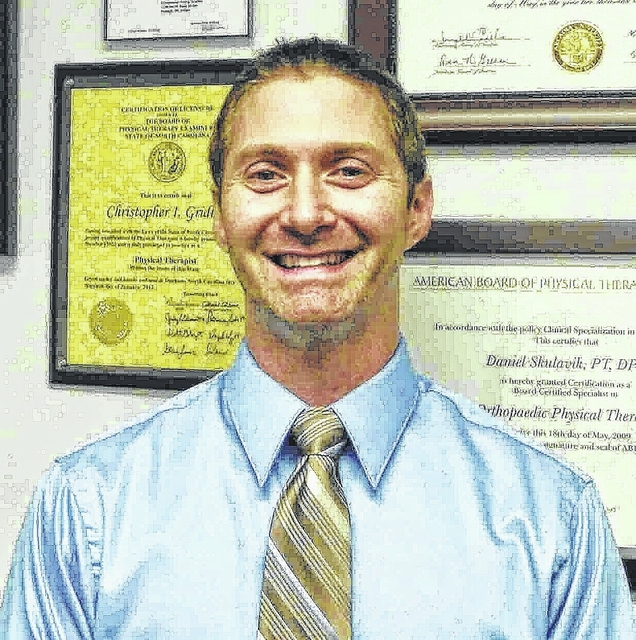
When there is a direct impact to the knee (as commonly seen in sports injuries), the knee joint can twist or stretch beyond its normal capacity causing ligament tears (or sprains), muscle tears (or strains), or cartilage injuries. Inflammation of protective cushioning in the knee joint (meniscus), or fluid-filled sacs inside the knee joint (bursitis), can also occur as a result of excessive wear and tear in the knee.
Knee injuries may be associated with joint swelling. This makes simple activities like bending the knee or putting weight on the leg difficult and painful. Sometimes, there is very little swelling and localized pain on one side of the knee, and the individual is able to walk without pain. Physical therapy can help reduce pain, regain function and restore strength in the knee. If you suffer from knee pain, you may benefit from attending two to three physical therapy sessions a week over the course of several weeks, depending on the severity of the injury.
A physical therapist is a trained health care professional who can design an effective injury prevention program, in addition to a comprehensive rehabilitation program for the knee. The goal of physical therapy is to restore mobility and decrease your knee pain as quickly as possible. One of the treatment objectives is strategic strengthening of the muscles around the knee to make the joint more stable, while protecting sensitive tissues during the healing process.
Depending on the results of your evaluation, the physical therapist may use heat to warm up the area, and ice to cool down muscles and reduce swelling. Ultrasound may also be used to help rehabilitate the knee. This treatment uses high frequency sound waves to stimulate deep tissues in the body, facilitate healing and improve blood flow to the tissues. Electrical stimulation may also be advocated if it is deemed appropriate. This modality sends an electrical current the affected area to stimulate muscle contraction.
A primary goal of a physical therapist is to recognize biomechanical deficiencies in the body. This allows a program to be designed which will help you move and use muscles more efficiently. A physical therapist can identify areas of weakness and poor mobility around the knee joint and design an exercise program to restore muscle balance between the quadriceps (muscles that extend the knee) and hamstrings (muscles that flex the knee).
At the initial visit, a thorough medical history review is performed. It’s important to discuss prior injuries, since this will help plan your treatment and intensity of exercises. It’s also important to discuss your tolerance for pain and your future goals.
As the community’s preferred physical therapists, we’ll stand by you and help you recover quickly – just reach out to us. We’ll guide you every step of the way if you’ve ever had, or are at risk for, a knee injury. There’s no reason to live with knee pain. We are trained to help you get back on your feet by regaining mobility and returning to your daily activities as quickly as possible. Go ahead, call us today. We are standing by to serve you.

